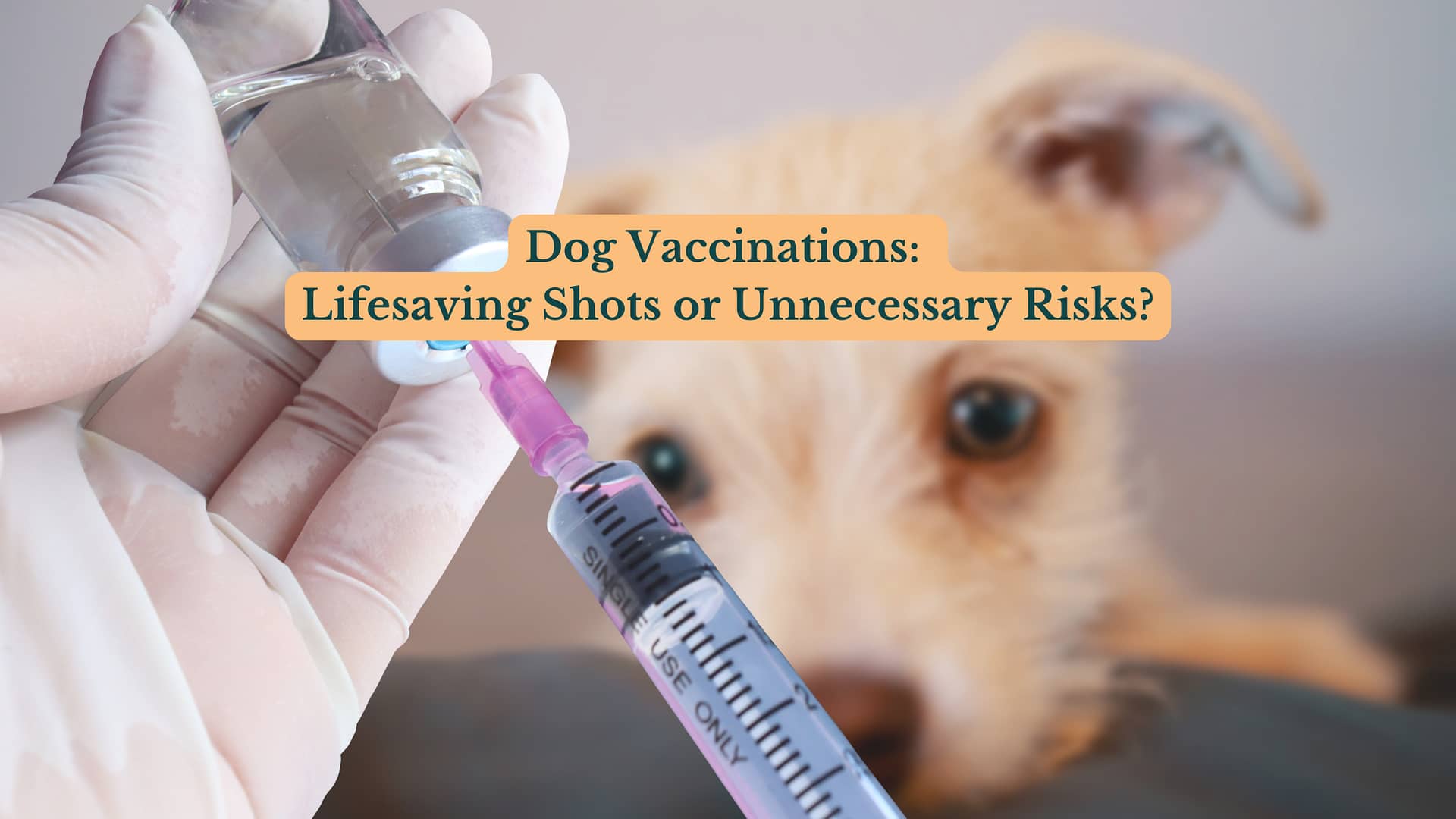
Worms in Pets: Everything you need to know
As a pet parent, understanding the risks and prevention of worms in your pet is crucial for their health and

When it comes to your dog’s health, vaccinations are one of the most debated topics. Should you vaccinate, or could that shot come with hidden risks? On one hand, vaccines may protect against life-threatening diseases. On the other hand, there’s concern about over-vaccination and its potential side effects.
So, how do you make the best decision for your furry friend? This guide explores the facts, debunks myths, and gives you actionable advice to keep your dog safe and healthy.
Your puppy enters the world equipped with a natural shield: maternal immunity. This temporary protection comes from antibodies passed through their mother’s milk and decreases slowly from 8 weeks onwards up to 16 weeks of age. But here’s the catch: as long as maternal antibodies are active, vaccines may not work effectively.
How to Time Vaccinations Correctly
Instead of guessing when maternal immunity fades, consider titer testing. This simple blood test measures your puppy’s antibody levels, helping you determine the perfect time for vaccinations. By ensuring the vaccine is administered when it will be effective, you can avoid unnecessary shots while keeping your puppy safe.
🦴 Quick Tip: Talk to your vet about titer testing before vaccinating. It’s a good investment that ensures your puppy gets the right protection at the right time.
The WSAVA (World Small Animal Association) recommends three must-have vaccines for all dogs: Hepatitis, Distemper, and Parvovirus. These diseases can be severe.
https://wsava.org/global-guidelines/vaccination-guidelines/
How to Avoid Over-Vaccination
Annual boosters? Not so fast. Research shows that immunity from core vaccines can last 7+ years. Use titer testing to check antibody levels before scheduling boosters, reducing the need for unnecessary shots.
📊 Did You Know? A study in Veterinary Immunology found that the parvovirus vaccine provides protection for up to 9 years in many dogs.
🐾 Quick Tip: Ask your vet to space out vaccines and stick to the essential ones only, reducing the risk of side effects.
Vaccinations may be lifesaving, but they’re not risk-free. Overuse or frequent boosters can lead to side effects, including chronic conditions like hypothyroidism, allergies, and even cancer.
Understanding Vaccine Reactions
Some dogs are more prone to adverse reactions due to genetics or health conditions. Common side effects include swelling at the injection site, while more severe risks involve autoimmune diseases or chronic inflammation.
🦴 Quick Tip: Work with your vet to create a personalized vaccination plan. Keep a journal of your dog’s shots and reactions for future reference.
If there’s one disease dog parents should fear, it’s parvovirus. This virus is highly contagious, with a mortality rate of 60-100% in untreated puppies. What’s worse? Parvovirus can linger in the environment for months, making it a persistent threat.
How to Protect Against Parvo
Vaccination may be the best defense against this deadly virus. But prevention doesn’t stop there. Thoroughly clean and disinfect areas where other sick dogs have been, especially before bringing a new puppy home.
📊 Did You Know? Even vaccinated dogs and your own shoes can carry and spread parvo if exposed to a contaminated environment.
🦴 Quick Tip: Minimise public outings until your puppy has completed its vaccination schedule or is around 16 weeks old to minimize exposure risks.
Nosodes are becoming increasingly popular with holistic pet parents as a natural alternative to vaccines. But are they really?
There is a lack of comprehensive research into the effectiveness of nosodes as a preventative measure.
However, it is my belief that they can provide protection when given in the face of a challenge, rather than as long-term protection after short-term administration.
Nosodes have a definite role in the treatment of disease.
There is no such thing as a risk-free strategy. It is a matter of assessing the risk and making an informed choice. A dog that frequents dog parks or daycare will need a different plan than one living in a rural area with limited exposure to other animals.
By understanding natural immunity, exploring alternatives like titer testing, and tailoring your dog’s vaccination plan, you can strike the perfect balance between protection and safety.

As a pet parent, understanding the risks and prevention of worms in your pet is crucial for their health and

As a naturopathic vet, I’ve seen many pets transform their health through homeopathy. From anxious dogs finding peace to allergy-suffering

What if the very medicine meant to heal your beloved pet was actually making them sicker? That was the

When shopping for dog food, the packaging may seem informative, but decoding what the labels actually mean can be challenging.

Itchy skin in dogs, known medically as pruritus, is not just an annoying habit for your pet—it’s often a sign

Only €14 for the first 100 dog parents 🐶
Then price increases to €19
💚 Natural remedies
📄 Step-by-step protocols
🖨️ Printable cheat sheets

Cat Nutrition
Learn about the nutritional needs of cats, why processed foods can be harmful, and get practical tips on how to create a healthy diet for your feline friend.